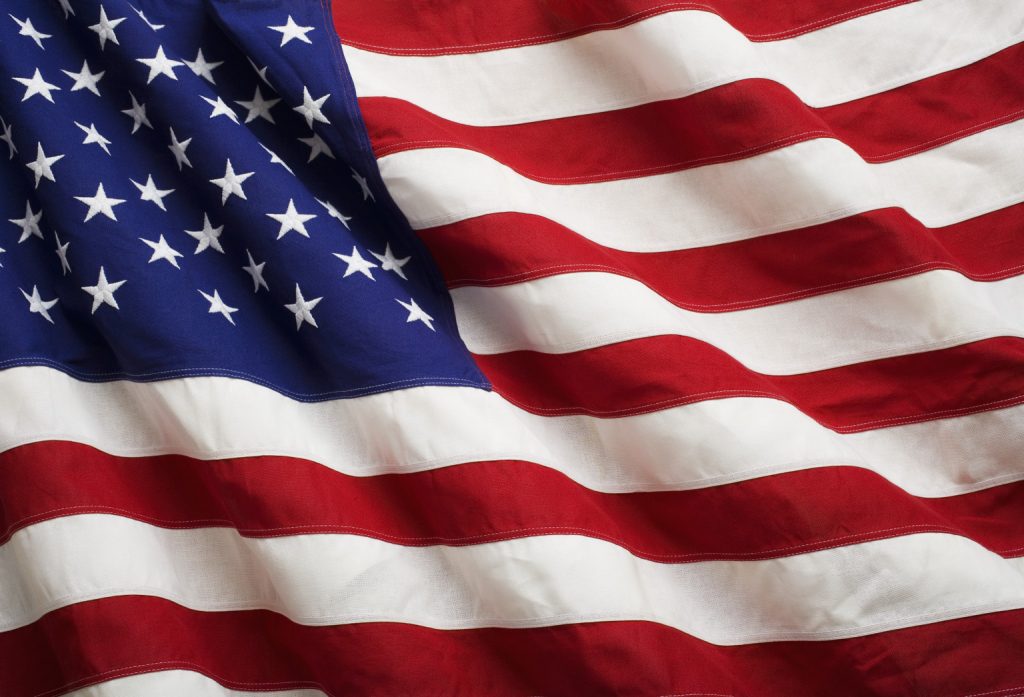Some years ago, Rosalind Hughes and her family arrived in America as new immigrants from Britain and encountered American civil religion for the first time.
“Three weeks after I first moved to the United States with my family, and one week into our American public school adventures, my youngest daughter asked me, “Mummy, did you know that we pray to the flag every morning at school?””
With that opening, Hughes goes on to explore in an article posted at Religious Dispatches, the curious relationship American have with their flag and its parallels in Christian practice. She notes the way the Flag Code (actual Federal law) suggestions of reverence to the flag mirror the liturgical response to the Gospel and that prescribed manner of disposing of flags is the same as that for disposing of blessed items;
“After an item has been blessed in divine service – palm leaves, linens used to dress or to wipe up at the altar, a metal chalice – and has reached the end of its useful service, the preferred method of its disposal is consumption by fire. Palm leaves are often turned to ashes for use the following year on Ash Wednesday, the beginning of the Christian holy season of Lent. Chalices may be melted down and recast.
We do the same for the flag”
She also looks at how these flag rituals might feel to members of communities long denied full participation in American life, quoting the Very Revd Will H. Mebane, Jr., Interim Dean at St Paul’s Episcopal Cathedral in Buffalo, NY, grew up in the South in a fairly conservative religious household.
“In high school, where he and his friends were among the first African Americans to integrate a previously all-white school, the Pledge was recited before football games; then the National Anthem was sung and the band played Dixie. Will and his friends petitioned the administration to tone down the southern jingoism, but were ignored.
It was around that time that he became aware that the same flag that he had grown up saluting featured prominently in the ceremonies of the KKK. How could he recite a pledge of allegiance that talks about liberty and justice for all when white supremacists were using the same symbols to profess and promote their hatred?
Still today, he says, “For me, the words ring hollow. They do not speak to my experience as a Black man in this country, with two African American sons, and Black colleagues, and Black friends—it is a lie.””
If “praying shapes believing” is true, how might these civic rituals being shaping our beliefs about our nation? Where do you see intersections between American civil religion and Christianity; do you think these are necessary rituals for our national life? Are flags displayed prominently in your place of worship?

